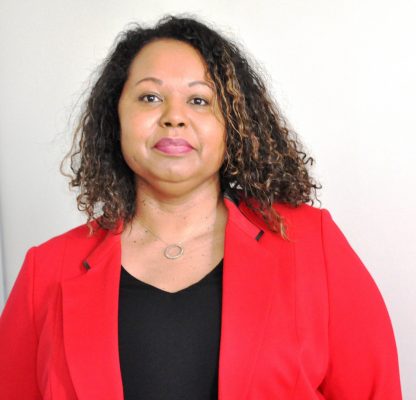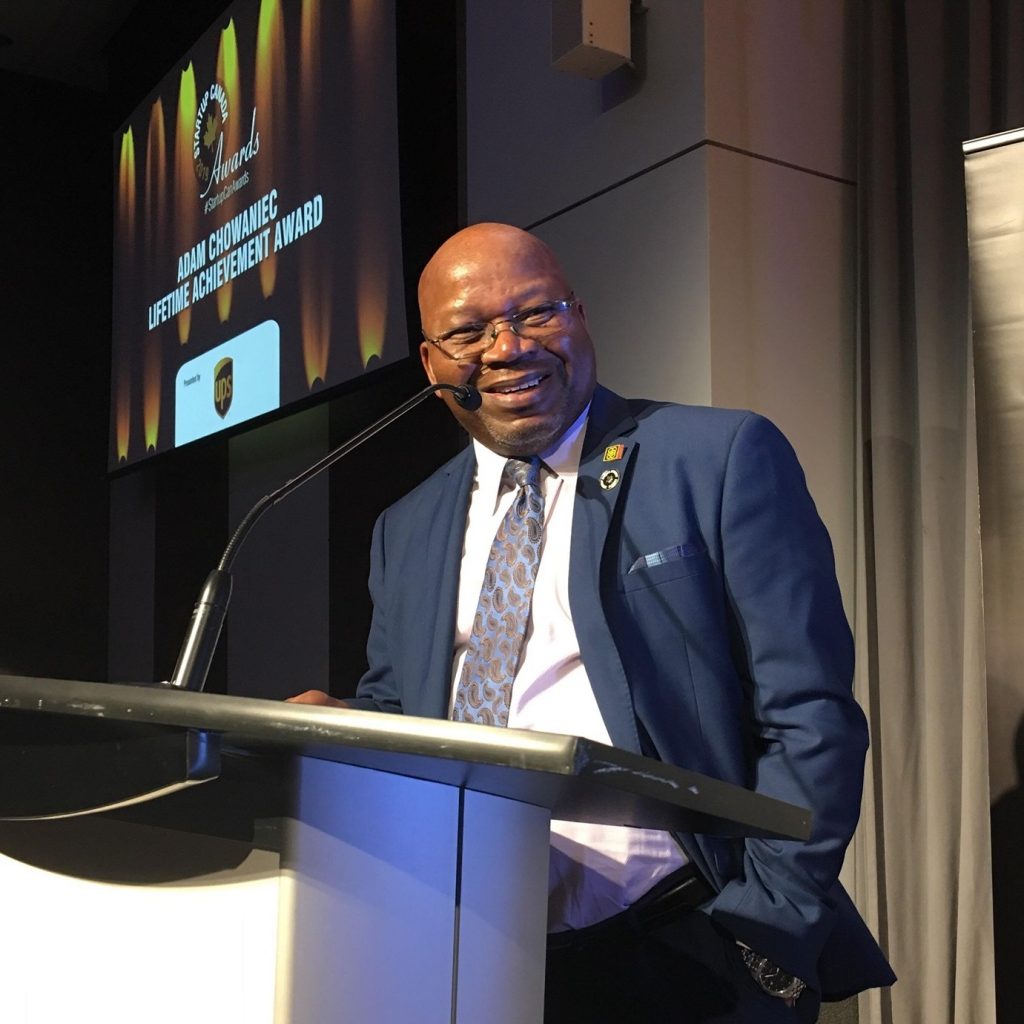Black-owned businesses say they have been devastated by COVID-19 and the government needs to “step in,” both through funding directly to the community and by revamping a federal procurement system that they say is leaving them out.
It’s heartbreaking to see so many businesses closing and at risk, said Andria Barrett, president of the Canadian Black Chamber of Commerce, which estimated 70 per cent of its members weren’t eligible to receive any help for the federal measures at the beginning of the crisis.
Despite repeatedly sounding the alarm, months later that figure remains above half with Black businesses—many of them small and in the service industry—both more likely to be affected and less likely to access emergency measures.
“We feel ignored,” said Ms. Barrett.
The Black Business and Professional Association (BBPA) conducted a pilot survey of 120 members and asked questions that mirrored a survey by the Canadian Independent Business Association to compare the experience, finding “alarming” differences in the poorer outcomes, access to federal support, and likelihood to survive. For example, while 32 per cent of the CIBA members said in April they weren’t sure if they’d reopen, 60 per cent of BBPA members presented those fears.
“In the best of times, the Black community has had challenges because of systemic racism … and in the worst of times, it is multiplied and amplified,” said Nadine Spencer, president of BBPA who is also CEO of the marketing agency BrandEQ Group.
During the pandemic, Ms. Spencer has operated a 24-hour business line to support companies because she sees the disadvantages for Black businesses “in the system that is stacked against us.” She said it’s the federal government’s responsibility to “step in,” especially with its own contracts.
“We need to insist there is an equity balance so everyone has equal access to these opportunities and that is not the case,” she said. “We can do [the work] and we’ve been shut out for a long time because of race.”
On June 16, the Parliamentary Black Caucus recommended actions that governments across the country can take to address structural inequities, including a focus on economic prosperity and advancement.
Black Business Initiative CEO Rustum Southwell said he’s pleased with the “bold step” put forward by the caucus and its recommendations that echo much of what the community has been calling for over the years.
Legal and practical barriers imposed on Black Canadians “stunted” the economic advancement of the community as a whole and have “perpetuated unconscious bias towards Black Canadian entrepreneurs and effectively limited the scope of career options available to Black Canadian workers,” said group’s statement, which is chaired by Liberal MP Greg Fergus (Hull-Aylmer, Ont.).
Make procurement more equal: advocates
Half of the four economic actions targeted the federal government, saying it must seek out and support proposals from Black business associations and increase the number of government procurement contracts for Black-owned and -operated businesses to a level commensurate to their demographic weight in the population, which is 3.5 per cent.
All governments should apply targeted measures to assist these businesses, the caucus statement said, and e-procurement solutions should be used to collect race-based data to track progress.
There are existing mechanisms to address the procurement gap, said Andrea Pierce, economic inclusion lead for the United Nations Decade for People of African Descent (UNDPAD) Push Coalition.

Andrea Pierce with the UNDPAD Push Coalition says years-old recommendations to improve procurement for Black businesses remain at a ‘standstill.’ Photograph courtesy of Andrea Pierce
The government should have a “set aside” for the Black businesses, ensuring companies get access to these contracts, and should mimic the Procurement Strategy for Aboriginal Business (PSAB) that has helped advanced Indigenous-owned companies.
“We’ve asked for this and we haven’t been successful,” she said, though it would be “easy” to match an existing program. It’s hard to get a sense of the success rate because no one is collecting the data, she added, and it would be easy for departments to consider Black businesses as part of the community benefit lens when awarding contracts and quickly implement them.
“It’s all optional right now, but they can make it part of the contracting process,” said Ms. Pierce. “It doesn’t require any legislation. It just requires ministerial direction.”
After the election, when new MP Anita Anand (Oakville, Ont.) was named procurement minister, Ms. Pierce said it felt like starting from scratch after making progress in the last Parliament. Ms. Anand’s predecessor Carla Qualtrough (Delta, B.C.), now employment minister, was “very supportive of the Black community” and made “great strides,” though she said it never translated to implementation at the department level.
“It’s been at a standstill, frankly,” she said.
Ms. Anand’s office didn’t address any questions from The Hill Times specific to procurement and Black businesses, including recommendations outlined by Ms. Pierce.
The government is committed to modernizing procurement practices, said Ms. Anand’s press secretary Cecely Roy by email, including removing barriers to participation to “ensure more fair and equitable access” to contracts. Earlier this year, she noted, the government launched a new e-procurement solution that was gradually introduced to suppliers, and will help give better insight into who the government does business with.
‘The cycle will perpetuate itself’
The Black Business and Professional Association has 2,000 active members and a list of 10,000 businesses, and of that Ms. Spencer said less than one per cent have ever received a federal contract.
“So what does that tell us?” she said, noting a key barrier to entry is that information about the system is too complicated, and applying often means hiring someone to help—an expense many small businesses can’t afford, though they are capable of fulfilling smaller, sole-sourced contracts.
“The only way to get the ability to scale up is by getting the opportunity, and if we do not have the opportunity, the cycle will perpetuate itself,” said Ms. Spencer.

Business owner Gloria Kapuku says Black company’s don’t get equal access to federal contracts. Photograph courtesy of Ms. Kapuku
Gloria Kapuku is one of the co-owners of FGL Telecom, a telecommunications carrier that has been in the industry for 10 years. While she’s actively applied to federal contracts for about a year and a half—she estimated responding to between five and 10 proposals per month—the company has been without success.
“We are equally treated when it comes to paying taxes but when it comes to being provided opportunities, we are not regarded and I don’t know why,” said Ms. Kapuku, who noted there should be diversity in their sector. “We don’t need a handout. We need opportunities. We need to be lifted up.”
UNDPAD’s calls to Black businesses across the country have confirmed that “very, very few” have been handed projects. Even in the 2018 women entrepreneurship strategy to improve participation, Ms. Pierce said in calls to the approximately 300 businesses that got funding since the program was launched, Black women accounted for only two.
They did the leg work because the government wouldn’t, she said, hoping evidence like this would make the issue harder to ignore, but she maintained advocates “haven’t got any action.”
She said Ms. Anand’s office has responded about setting up a meeting with UNPAD, put off to this point because of COVID, and she hopes it comes with “good news” rather than just face-time.
“We’re frankly tired of having meetings. We don’t feel like they are hearing us, it feels almost like pacifying us to have a meeting and then nothing happens.”
Government working to address caucus recommendations: Ng
Businesses are the foundation for wealth creation and wealth transfer, said Ms. Pierce, and Statistics Canada data shows Black Canadians are worse off after three generations than any other population.
“We’re the only group that is regressing economically even though our educational levels have increased,” she said. “That’s unheard of.”
Despite raising these issues for months, there has yet to be a remedy, and so the chamber is asking for $165-million to act as an intermediary with the hope of helping 6,000 businesses by giving them up to $25,000 in forgivable loans, Ms. Barrett said to mimic what the government has done with grants their members can’t currently apply for, but “tailor it” for the community.
“There’s a different nuance when it comes to Black business owners,” and helping them would have a “ripple effect”on the community, too, she said.
There are several reasons Black owners have ”fallen through the gap” in Canada’s COVID-19 response, she said. Sometimes it’s the way businesses are set up. Some businesses use contractors or outsource work rather than have them on staff, they’re family-run, and in some cases the owner also isn’t on payroll, instead paid by dividends. Many legitimate businesses may not have a business bank account, too, and some may not be properly registered to be eligible for funding. Part of it is education, she said, and the chamber has put in a proposal to collect data about Black businesses in Canada, and help them if they’re not structured properly.
Since March, Ms. Barrett said she’s sent emails to departments every week, including the Prime Minister’s Office, trying to get action but she said “nothing” has been addressed.
“The PMO must be tired of me,” she said, though some recipients have been “fantastic” MPs.

Black Business Initiative CEO Rustum Southwell says the community needs funds but also support to with technology and skills development post-COVID. Photograph courtesy of Rustum Southwell
Mr. Southwell estimated about 60 per cent of Black businesses exist in the service industry, like retail, hair care, and restaurants—businesses especially suffering in this environment.
It’s not just about investment, he said, but there also needs to be a practical way to resolve the imminent challenges companies will face in the post-COVID context, in terms of technology and skills development.
“There is a general lack of access to resources in the community, partly due to the significant gaps in the way that the community receives information on government support, as well as an underlying level of distrust,” he said, and the community benefits when organizations are able research the needs and then target initiatives.

Small Business Minister Mary Ng was among the ‘allies’ who signed their support to the Parliamentary Black Caucus’ statement. The Hill Times photograph by Andrew Meade
Small Business Minister Mary Ng (Markham-Thornhill, Ont.), who was not available for an interview, has publicly supported the caucus statement, and her office said she’s working with colleagues to address the recommendations and ensure better representation.
Asked about measures specific to the small business file that target Black communities, her press secretary Ryan Nearing pointed to work early in the crisis to create the Canada Business Resilience Network. It partnered with StatsCan to launch nation-wide surveys where there is “a more expansive demographic question to capture the impact of COVID-19 on businesses owned by people of diverse communities across Canada, including Black Canadians,” said Mr. Nearing in an email response that said all levels of government must address anti-Black racism.
He also pointed to the Business Development Bank of Canada, which offers support to Black entrepreneurs through the Supplier Diversity Program, as well as the “plus” aspect of the Liberal government’s gender-based analysis attached to decisions as making sure specific needs and realities are considered, including for Black Canadians.
Ms. Pierce said she thinks Prime Minister Justin Trudeau’s (Papineau, Que.) “heart is in the right place” and she applauds him for taking a knee at an Ottawa protest against anti-Black racism and police brutality.
“Heart alone is not going to do it—we need him to take a stand now that he’s taken a knee,” she said. “We’re not looking for a handout, we’re looking for a hand up.”
The Hill Times


